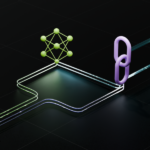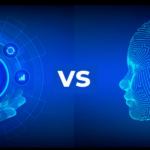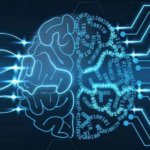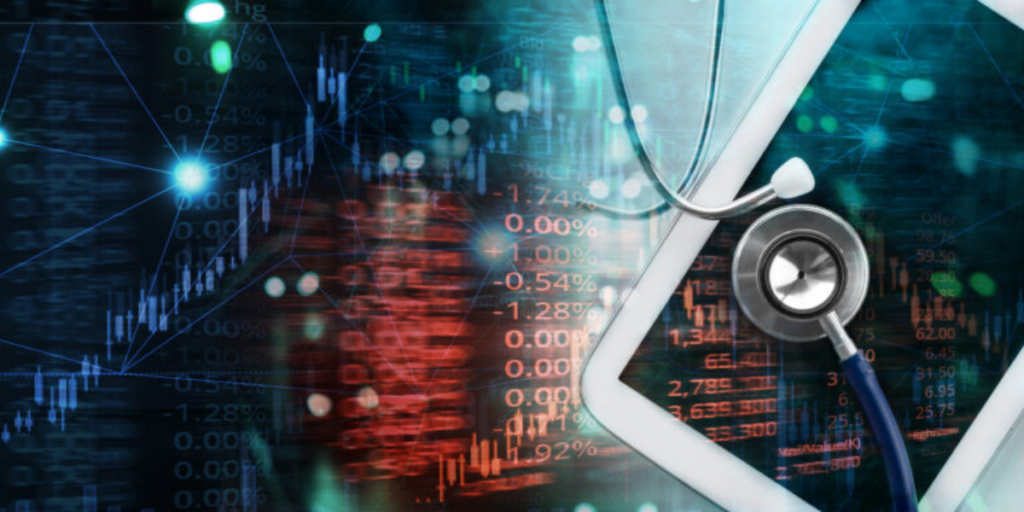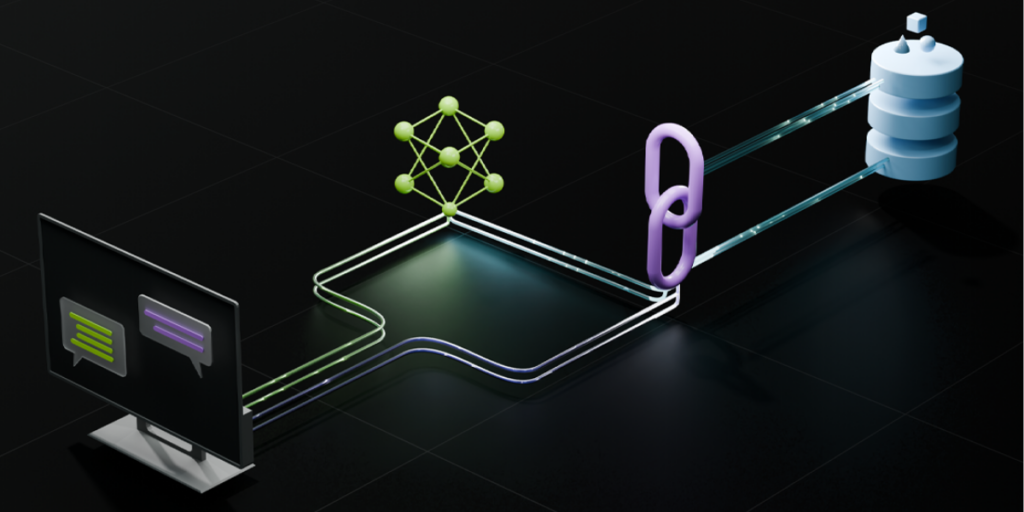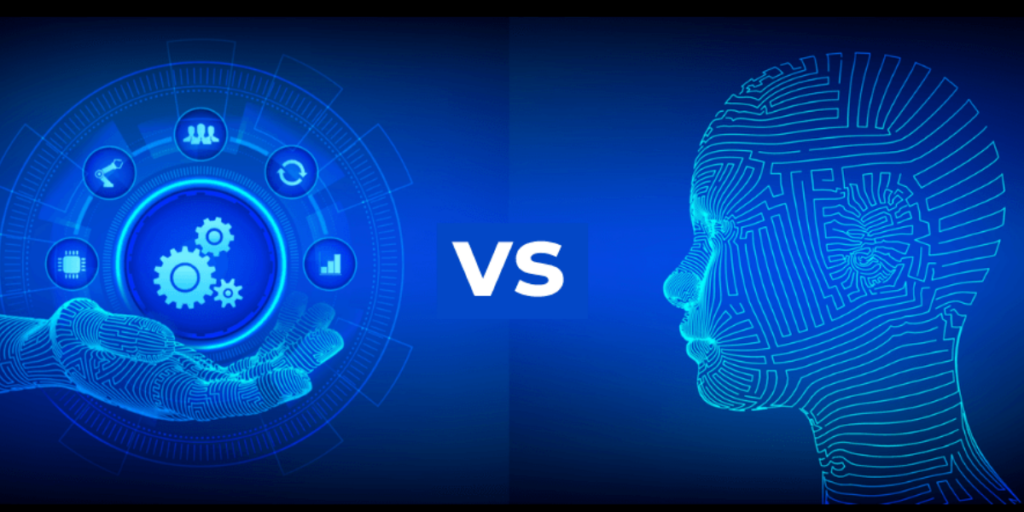In the rapidly changing healthcare environment, one particular technological advancement stands out as an essential force behind positive transformation, that is artificial intelligence (AI). AI is able to anticipate or personalize the way patients are treated. It would be right to say that AI is bridging the gaps between conventional healthcare.
The applications of AI healthcare software development are vast, ranging from scanning radiological images to early disease detection, to forecasting results from electronic health medical records. By utilizing artificial intelligence within hospitals and clinics health systems, make them efficient, quicker and more efficient at offering healthcare to millions around the world. Artificial Intelligence in healthcare will truly become the new norm, transforming the way patients get quality healthcare and reducing costs for healthcare and improving patient outcomes.
AI within healthcare is anticipated to play an integral impact in the transformation of how we manage healthcare data. Through the use of artificial intelligence within the field of healthcare, doctors can make more informed choices with more precise data. From finding new cancer therapies and improving the patient experience, AI promises to revolutionize healthcare and is leading the way toward an era where patients get high-quality care and treatments.
In this post we’ll explore the ways in which AI has a positive impact on the field of healthcare.
What Is AI In Healthcare?
AI in the field of healthcare is the utilization of machine learning, natural language processing, deep learning, as well as other AI technology to improve the experience of health professionals and patients. Data processing and predictive abilities of AI allow health professionals to improve their management of resources, and to adopt a more proactive approach to the various aspects of health care.
Thanks to these advancements, doctors will be able to create rapid and accurate diagnoses. Health administrators are able to identify electronic health records quicker and patients will receive prompt and customized treatment. According to a report, the health AI market is expected to grow to $102.7 billion by 2028.
Artificial intelligence for healthcare isn’t a brand new idea. Since the 1950s, AI applications first came into use to address biomedical issues. But, the early AI systems required improvement in order to deal with the complexity of medical information. Thanks to the advances in computing capabilities in the 1980s as well as the 1990s, an increase in AI research into healthcare can be witnessed. It was a crucial time in the development of machine learning algorithms.
The introduction of deep learning in the beginning of 2000 proved to overcome many prior limits and became a crucial change in introducing AI for healthcare. The algorithms of the new generation began to detect patterns within large datasets which is why they’re ideal for analysing the medical records. Today, AI machines analyze data and are adept at self-learning. This allows us to move into an era of healthcare that is new in which AI tools can be applied to clinical practice. Today, AI holds immense potential and is capable of offering unimaginable opportunities.
How Is AI Shaping The Modern Healthcare Landscape?
The AI revolution affects all aspects of the healthcare sector, from diagnosis and treatment to management. The AI revolution can improve the patient experience, financial results, and overall efficiency.
Empowering Diagnostics
One of the most profound effects of AI on healthcare is in diagnostics. AI-powered technologies improve the accuracy and speed of diagnosis. AI-powered diagnostic tools deliver faster, more accurate results for everything from pathology slides to MRIs.
In particular, AI-driven diagnostic tools, such as computer-aided identification (CAD), can improve the precision of medical imaging analysis. By identifying patterns and anomalies that may not be visible to human eyes, AI tools aid health professionals in making better-informed diagnoses, reducing the chance of error and improving patient outcomes.
With machine-learning algorithms, AI can thoroughly examine vast volumes of medical records- from medical records to imaging scans- with incredible speed and accuracy. This ability allows the early identification of illnesses such as cancer and neurological conditions.
Personalized Treatment Plans
With the advent of AI technology, the age of universal treatments is slowly disappearing. AI-powered analytics enable the treatment plan to be personalized to the individual patient’s needs according to the characteristics of the data.
AI can use data to provide personalized treatment strategies, taking into account clinical, genetic, and lifestyle information. AI algorithms can tailor treatments to meet every patient’s individual needs and preferences. This approach enhances therapeutic effectiveness, reduces negative results, and improves resource utilization.
In addition, AI facilitates predictive analytics. By analyzing patient records and trends in clinical practice, prescriptive models allow doctors to identify potential issues, anticipate problems, and modify treatment strategies. It also provides proactive treatment that improves patient outcomes and decreases healthcare expenses.
Optimizing Finance and Improving Patients’ Treatments
Artificial Intelligence algorithms enable health organizations to collect, analyze, process, and understand complex information more efficiently. AI will suggest the most appropriate treatments tailored to the patient’s requirements. Additionally, risk adjustment using AI improves adherence to medical treatment by providing personalized recommendations and strategies that improve treatment outcomes and reduce healthcare costs.
Reduce Staff Burnout
A vital healthcare issue that AI addresses within healthcare is to decrease staff burnout. Employee burnout is among the most pressing healthcare system issues monthly because of the increasing number of patients and staff members.AI for healthcare allocate the resources, which empowers physicians to use AI to combat burnout. AI can appropriately triage the resources needed to deal with emerging issues at every point of contact with patients. If you have only one stone, ensure you aim it correctly.
Enhancing Operational Efficiency
Beyond medical applications, AI is streamlining administrative operations and processes within healthcare facilities. According to research conducted by PwC, AI technologies such as natural processing of languages (NLP) algorithms have been automating medical transcription, enabling rapid and accurate conversion of spoken language into structured clinical documentation. The automation reduces the workload of medical staff, allowing the time to focus on patient care and reducing administrative costs.
Automated Documentation
Documentation is an important factor in burning out of frontline employees. AI tools could help reduce the documentation process through the real-time summary of the patient’s experiences and reduce the lengthy manual data entry requirement. Natural language processing tools allow health professionals to write notes, advice, and care plans, eliminating the arduous job of writing and making the faster and faster integration of data in electronic medical records.
Augmented Decision Support
Health professionals working in the frontline typically deal with complicated situations and many symptoms, needing quick and precise decisions. Decision support systems based on AI can enhance their expertise in clinical practice, offering evidence-based information that aids in faster diagnosis and treatment plans.
By harnessing AI to analyze patient information and medical research, medical professionals can make rapid, well-informed decisions. This reduces the amount of the manual process of data entry and analysis. This improves healthcare and eases the mental strain on the frontline staff.
Increased Diagnosis Accuracy
AI also plays a vital role in enhancing the accuracy of diagnostics and helping to decrease burnout. AI’s power is in its capacity to process vast quantities of health data quickly and effectively, opening the way for better and rapid diagnosis.
AI systems can use ML techniques to discern abnormalities and patterns in medical imaging. This enables earlier detection of ailments such as cancers and neurological conditions. Studies showed a 50% lower rate of missed diagnosis if AI enhances colonoscopy scans, demonstrating the possibility of quicker and more accurate diagnosis.
Use Cases and AI Applications In Healthcare
The nature of the business and its primary objectives can determine how AI can be utilized to automate analysis. This section will look at a few AI use cases in healthcare and applications that help healthcare and life sciences organizations optimize their processes.
Predictive Analytics To Improve Patient’s Treatment
AI-powered predictive analytics can allow healthcare professionals to predict patient requirements, forecast disease progression, and reduce hospital admissions. AI can predict which patients are most at risk of developing specific conditions by analyzing the patient’s history or genetics and other health indicators.
AI algorithms analyze patient information such as medical histories, laboratory findings, and other vitals to determine the probability of readmission upon discharge. Hospitals can use this data to create post-discharge plans of care tailored to each patient’s risk, increasing outcomes and decreasing expenses.
AI-powered models are revolutionizing the treatment of chronic illnesses such as diabetes, hypertension, and heart diseases. AI assists in continuous monitoring and provides patients with individualized care via wearables and other intelligent devices. Through real-time data analysis, AI can inform doctors and patients about the need for action and prevent issues.
Medical Imaging Analysis
Medical examinations produce a vast amount of data, including graphical results taken from MRI scans, ultrasound findings, cardiograms, and CT scan results. Sorting and analyzing the images can be lengthy and labor-intensive for doctors. The integration of AI technology is revolutionizing the process and enhancing the evaluation of information from visual images.
Through AI-powered medical systems, specialists can benefit from an automated method of recording medical records that streamlines the administrative aspects of their jobs. By automating the time-consuming process, doctors can shift their attention to the most important factors in serious situations when prompt and precise diagnostics are crucial for the best results for patients.
Furthermore, AI assists in making better diagnoses by rapidly analyzing vast amounts of data and comparing it with studies on identical patients. The AI systems detect patterns and make implicit relationships, allowing medical professionals to pinpoint the most critical information.
Robotics Assisted Surgeries
Medical robots have been in use for more than thirty years. They range from the simplest lab robots to highly sophisticated surgical robots, which work with a surgeon on the human side or perform operations on their own. They are utilized in labs and hospitals to perform repetitive tasks, rehabilitation, physical therapy, and assistance for those with chronic issues, in addition to surgical procedures.
Robots can totally transform a patient’s life by allowing them to retain their independence over time while reducing the need to use nursing and inpatient facilities. AI can make robotics even more able and even interact with humans to keep elderly minds fresh via “conversations” and other social interactions. This is why the application of AI within healthcare can advance the science of Robotics.
Drug Research and Discovery
AI aids pharmaceutical companies in designing drugs and helping them choose the most suitable device for the job. AI-powered drug development systems assist businesses with using massive amounts of information to quickly identify responses and develop better and more affordable treatments.
Incorporating biotech-related platforms is one of the most intriguing ways to use AI for healthcare. Machine learning is currently being utilized by various pharmaceutical firms, such as Pfizer, to discover treatment options for immuno-oncology.
They’re trying to find novel combinations of ingredients to develop new medicines by searching for patterns within medical information and investigating the effect of current medications on patients. Researchers and AI engineers are trying out innovative methods to discover novel medicines and vaccines that can cure chronic conditions and a myriad of ailments by utilizing very advanced programs accessible on the web.
Diagnosis and Treatment
When a patient receives a medical picture, the diagnosticians review it for any signs of abnormality or indications of illness. Thanks to the advancement in AI and ML technology, medical image solution have become more than just a matter of recognition; however, they are thoroughly scrutinized for any features and variations. The AI-based systems are adept at diagnosing even the smallest neoplasms, which are often not noticed by the eye of a normal person, and provide valuable details about the nature of those deviations from regular.
It is helpful that patients have several pictures taken at different times to make more precise diagnoses. The neural network can study the progression of the illness and monitor the disease’s progress as it develops. The benefit of AI technology is its ongoing process of learning, which allows it to enhance its performance with each successive analysis. This is why the accuracy of computer diagnostics is estimated to be under 3% error, which is higher than that of human capabilities.
Healthcare Assistants
Virtual health assistants handle many jobs, such as taking calls or emails from patients and maintaining their medical records while safeguarding confidential information. They also schedule appointment times with doctors and remind patients of the need for follow-up appointments and clinics, among other tasks.
Systems that employ cognition, computing with augmented reality, and even voice and body movements can be combined to create this. Augmented and cognitive computing aids in stimulating and solving complicated human thinking. It’s one of the most valuable AI tools in healthcare. It provides patients with an individualized experience in caring for their health and answering their doubts. Reducing the number of hospital visits benefits medical professionals and patients.
Personalised Treatment plans
AI can create highly customized treatment plans based on a patient’s personal health information, including lifestyle, genetics, and treatment experience. AI-driven tools are helping doctors develop individualized treatment plans for cancer patients. By analyzing genetic data and clinical trials, AI could suggest treatments more likely to work for a specific type of cancer the patient suffers from.
AI can be utilized to develop personalized treatments for patients suffering from heart disease. By analyzing data taken from Electronic Health Records (EHRs), wearable devices, and a patient’s genetic profile, AI devices can provide individualized medication regimens, dietary changes, and exercise programs that improve patients’ outcomes.
Medical research and documentation
AI’s capability to comprehend and process human languages via Natural Language Processing (NLP) transforms healthcare documentation and research. NLP can sort through enormous quantities of medical literature, collect relevant information, and assist with writing research studies.
Doctors spend a lot of their time recording patient encounters. AI-driven NLP instruments help reduce the burden of documenting these visits by converting the medical notes into speech immediately, allowing doctors to concentrate on providing care to patients. AI-driven NLP has revolutionized medical research, processing massive quantities of clinical data and scientific publications.
Automation Of The Administrative Workflow
Hospitals are plagued by lengthy and slow-to-complete administrative duties. AI tools are becoming increasingly utilized to streamline routine administrative tasks like scheduling, billing, and coordinating patient records.
AI-powered systems can automate complicated medical billing processes, ensuring accuracy while reducing the duration of manual data entry. Businesses are developing AI solutions for healthcare to help health institutions reduce billing and administration overhead mistakes.
Clinics and hospitals are using AI to anticipate patient demand and improve staff scheduling accordingly. By anticipating peak patient numbers, health facilities will be able to ensure they have enough staff available to accommodate the needs of patients and reduce wait time and staff burnout.
Best Practices For Implementing AI In Healthcare
From machine learning techniques through natural language processing, AI transforms the way patients are treated in a variety of ways that improve patient outcomes and reduce costs. In this section, we will discuss the best practices to implement AI in healthcare.
Identify The Problem and Set Clear Goals
The initial step to implementing AI in healthcare is to determine the issue you wish to resolve and define specific goals for your project. It could involve analyzing information to discover patterns that could help make treatment decisions or employing AI to streamline some aspects of care for patients. It is essential to know the issue you’re looking to address and what it takes to achieve success to measure the proposed solution’s efficacy.
Ensure Data Quality and Security
AI in healthcare depends heavily on data and is crucial to guaranteeing the security and quality of the data used. This could mean cleaning and preprocessing the data to eliminate inconsistencies or errors while ensuring the data is securely stored and within the regulations applicable to it.
Involve Clinicians and Stakeholders In The Process
A successful deployment of AI for healthcare needs support from healthcare professionals and other stakeholder groups. It is crucial to include them in the design procedure from the beginning, soliciting their input and comments on the overall design and function of the AI technology. This not only guarantees that the AI can be adapted to the requirements of the health care organization but also assists in addressing any issues or objections against the technology.
Choose The Right AI Technology
There are various AI technology options for healthcare institutions, including machine learning, natural language processing, and robotics. Select the right technology for your needs and the issue you seek to resolve. It could involve collaborating with suppliers or consultants to review the options and select the best one for your needs.
Test and Validate The AI Solution
When the AI solution is developed, the next step is to verify and test it prior to deploying it in a clinical context. This could involve conducting tests or pilots to determine how effective the technology is and any issues or areas of improvement. It is crucial to include the clinicians and other participants during this procedure to ensure that the AI can be trusted and efficient.
Monitor and Evaluate The AI Solution
A successful deployment of AI in healthcare demands continuous monitoring as well as evaluation to ensure that the AI solution meets its goals and provides the desired results. This could involve monitoring key performance indicators and performing regular reviews of the AI solution to pinpoint areas of concern or potential for improvement. The company should be prepared to adjust the AI solution to ensure it continues meeting its demands.
Provide Training and Support
It is also important to provide support and training for staff and clinicians to ensure their competence in using AI technology. This could involve training about the system and any innovative workflows or processes that have been developed. It’s important to ensure that the employees are familiar with working with the AI system and are aware of how AI can be used to improve the patient experience.
The Future Of AI In Healthcare
AI in Healthcare is poised to significantly change how healthcare professionals assess, treat, and monitor patient care over the next few years. A new AI technology for healthcare is ready to boost patient outcomes across a wide variety of. In particular, AI tools will soon assist in predicting disease progression by identifying subtle warning signs within patient records and providing quicker, more efficient interventions. These advancements are expected to enhance health care and reduce the risk of complications that could be prevented and associated costs.
Beyond the diagnostics aspect, patients can benefit from AI-powered real-time remote support and collaboration. Advanced technology allows surgeons to remotely guide surgical operations with limited resources and increase access to the highest-quality medical knowledge. In addition, AI solutions will combat the common problem of alarm fatigue in the clinical environment. By removing unnecessary notifications, AI ensures that healthcare professionals focus only on urgent messages, thereby improving the safety of patients and improving efficiency in care.
AI’s influence will extend beyond the confines of the clinic and hospitals. Monitoring patients remotely will benefit from AI-driven wearable technologies, allowing doctors to monitor a patient’s health constantly and react quickly to any alarming change. In the meantime, the concept of precision medicine is becoming more feasible because AI simplifies the analysis of genetic and genomic information, speeds diagnosis, and creates fully personalized treatments. On the administrative side, automated approvals for insurance and billing can reduce the amount of delays when robust ethical and regulatory systems protect against abuse and ensure fairness.
In addition, AI will assist in the early detection of rare illnesses, often requiring a quick and accurate diagnosis. With advanced pattern recognition and facial recognition, smart algorithms can identify genetic diseases that doctors might miss. AI personalized virtual health coaches can further assist patients in making healthier decisions about their lifestyle, assisting in preventive healthcare and improving health results.
The possibilities of AI for healthcare are extending to the future, when connected digital ecosystems and powerful analytics engines are set to transform our knowledge of the relationship between health and disease. The main challenge isn’t AI’s ability to be awe-inspiring but incorporating these tools in everyday clinical practices.
Conclusion
AI is a beacon of hope in our fast-paced healthcare environment. It promises an era where healthcare will be a product and a relationship with humanity and technology. AI is not only just a technological advancement; it’s also an essential ally in ensuring the safety and efficiency of the healthcare process. The ability of AI to anticipate medical conditions, tailor the treatment plan, eliminate mistakes through automation, and improve administrative processes enables healthcare professionals to offer superior treatment.
Utilizing AI’s capabilities for healthcare is essential. Each time a breakthrough is made in AI, it is a step taken towards creating an improved healthcare system that is more effective, efficient, patient-centric, and, ultimately, healthier for everyone. While healthcare organisations continue to accept AI and its incredible capabilities, we can look towards a healthcare system that is more flexible towards patients, effective, and caring, one that puts the patient as the primary focus of treatment.



